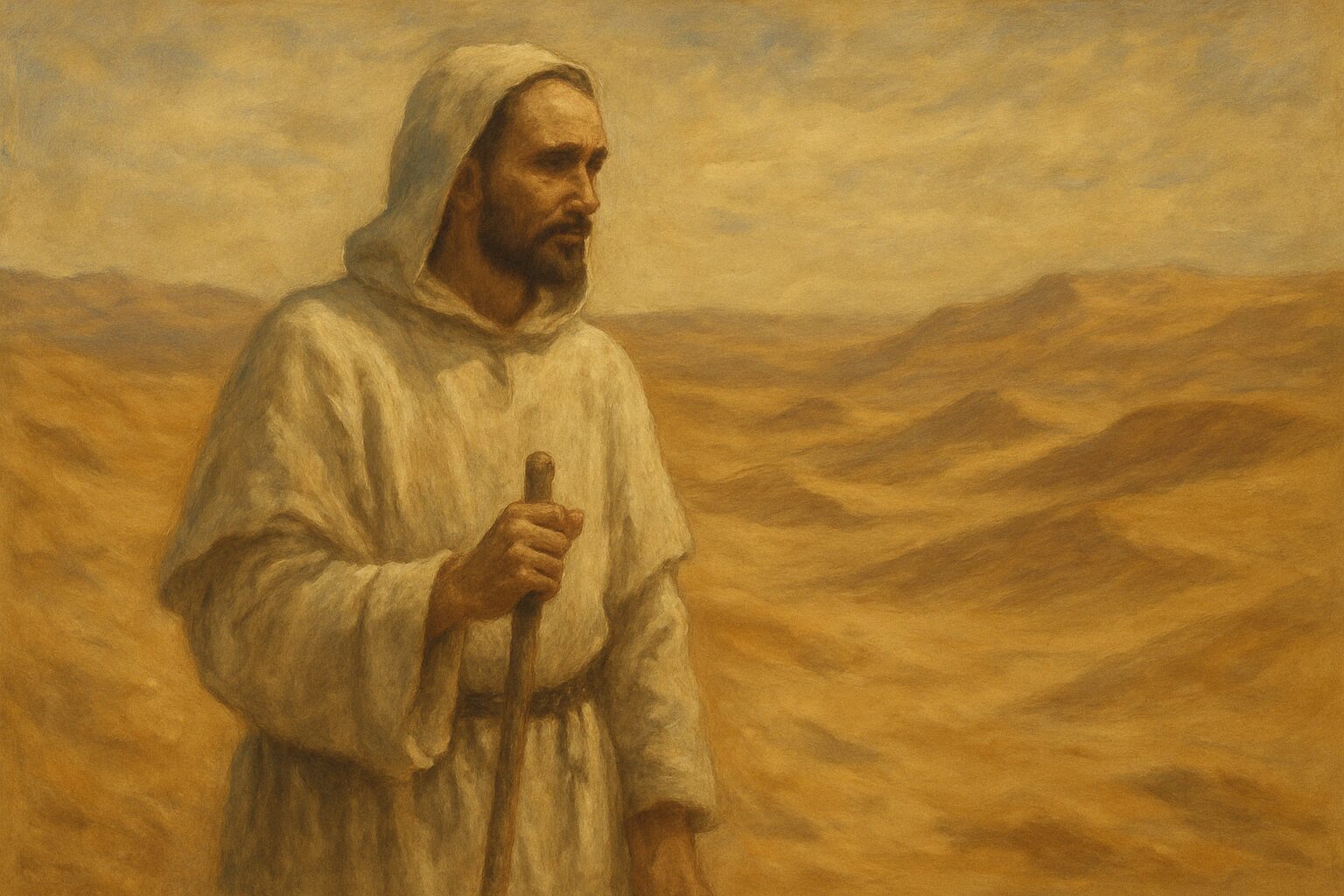“The one thing we owe absolutely to God is never to be afraid of anything.”
— Charles de Foucauld
There is a desert more intimate than sand and sky. It is the wilderness of the soul, where silence is not absence but fullness, and solitude is not loneliness but presence. It is here that the French mystic Charles de Foucauld found his God—not in cathedrals or councils, but in the scorched stones of the Sahara, the quiet labor of daily life, and the perpetual offering of his own heart.
Born in Strasbourg in 1858, Foucauld’s early life was marked by privilege and spiritual drift. Orphaned, aristocratic, and aimless, he wandered intellectually and geographically until a profound conversion in 1886 turned him inward. “As soon as I believed that there was a God,” he wrote, “I understood that I could do nothing other than to live for Him alone.”
What followed was not sainthood in the usual sense, but something more invisible, more elemental. He renounced everything—career, title, comforts—and sought the hidden life of Jesus, obscured in Nazareth, lived in silence, humility, and unnoticed love.
A Mystic Without a Monastery
Unlike the cloistered saints of medieval Europe, Foucauld did not retreat behind stone walls. Instead, he wandered to Beni Abbès and later Tamanrasset, on the edge of the Algerian Sahara. There he lived as a hermit among the Tuareg, learning their language, sharing their life, and documenting their poetry. He offered no sermons. His theology was action, presence, and love without agenda.
“Cry the Gospel with your life,” he once said. His was the spirituality of the mustard seed, buried deep, unseen—but radiant with divine intention.
The Eucharist of Silence
At the core of Foucauld’s mystical life was the Eucharist, not merely as liturgy but as existential offering. For him, the desert became a tabernacle—vast, bare, yet alive with the breath of God. His hut, his quiet work, his prayers at dawn—these became sacraments.
In his own words:
“I want to be so completely Christ’s that people can look at me and see only Him.”
This radical identification with Christ in His hidden years—thirty silent years before three of ministry—became Foucauld’s own map for sanctity. In the age of spectacle and noise, he chose the invisible life.
Techno-Mysticism and the Neo-Desert
There is something uncannily modern about Foucauld’s journey. Today, many wander through digital deserts—overstimulated, undernourished, and spiritually famished. The hunger is no longer just for meaning but for presence. Foucauld’s answer was not information, but transformation; not output, but stillness.
In our world of streaming thought and algorithmic identity, Foucauld’s legacy offers a provocative reversal:
- Disconnect not to escape, but to offer.
- Serve not to be seen, but to become unseen.
- Dwell not in relevance, but in reverence.
He died violently, murdered in 1916 during local unrest—yet even in death, his mission remained hidden. It was only after his passing that his writings ignited a spiritual revolution. The Little Brothers and Sisters of Jesus, inspired by his example, now carry his spirit into prisons, slums, and silent corners of the world.
Invitation to the Inner Desert
The mysticism of Charles de Foucauld is not about location but orientation. You don’t need to cross dunes to follow him. His call is to the desert within—to that stripped place where ego, image, and ambition die, and only love remains.
“It is in the silence of the desert that we hear the whispers of God,” he wrote.
Perhaps, then, ZionMag readers are already pilgrims—wandering through digitized distractions, seeking something purer, slower, truer.
In the 21st-century wilderness, Foucauld stands not as a relic, but a guide.
A mystic of presence in absence, of offering without demand, and of a faith as radical as stillness.

Leave a Reply